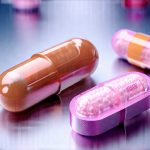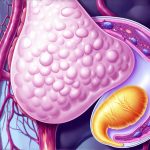Antibiotics are powerful medications crucial for fighting bacterial infections, but their impact doesn’t end when symptoms subside. While effectively targeting harmful bacteria, antibiotics can also disrupt the delicate balance of microorganisms within our bodies, particularly in the gut and, consequently, influencing bladder health. This disruption can lead to a variety of post-antibiotic side effects, including changes to urinary flora, increased susceptibility to opportunistic infections like yeast infections, and even temporary alterations in bladder function itself. Understanding how antibiotics affect these systems is the first step towards supporting optimal recovery and minimizing discomfort after completing a course of medication.
Recovering from antibiotic use isn’t simply about waiting for symptoms to disappear; it’s about actively nurturing your body back into balance. Many individuals experience lingering effects, such as increased urinary frequency, urgency, or even mild discomfort, long after the infection has been cleared. These aren’t necessarily signs of a recurring infection but rather indicators that the natural ecosystem within your bladder and gut needs time to rebuild. This article will explore practical strategies for supporting bladder recovery post-antibiotics, focusing on dietary adjustments, lifestyle modifications, and gentle practices aimed at restoring overall well-being. It’s important to remember to consult with your healthcare provider if symptoms persist or worsen, as they can provide personalized guidance based on your specific situation.
Restoring the Gut-Bladder Connection
The gut microbiome – the vast community of bacteria residing in our digestive system – plays a surprisingly significant role in bladder health. This connection, often referred to as the gut-bladder axis, is bidirectional: what happens in the gut directly impacts the bladder and vice versa. Antibiotics, while eliminating harmful bacteria, also indiscriminately kill beneficial gut bacteria, disrupting this delicate balance. A compromised gut microbiome can lead to increased inflammation throughout the body, potentially irritating the bladder lining and exacerbating urinary symptoms. Furthermore, an imbalanced gut can weaken the immune system, making individuals more vulnerable to future infections.
Re-establishing a healthy gut flora is therefore paramount for post-antibiotic bladder recovery. This isn’t about finding specific “bladder bacteria” to replenish; it’s about fostering a diverse and resilient overall microbiome. Dietary changes are central to this process. Incorporating fermented foods like yogurt (with live cultures), kefir, sauerkraut, kimchi, and kombucha can introduce beneficial bacteria into the gut. These foods should be chosen carefully, ensuring they don’t contain excessive sugar or artificial additives. Similarly, consuming fiber-rich foods – fruits, vegetables, whole grains, and legumes – provides nourishment for existing beneficial bacteria and promotes their growth.
Consider a probiotic supplement, but choose one specifically formulated post-antibiotics, ideally with multiple strains known to support gut health. It’s best to discuss probiotic options with your doctor or a registered dietitian, as the right strain can vary depending on individual needs. Remember that probiotics are most effective when combined with a fiber-rich diet. Beyond food and supplements, minimizing processed foods, sugar, and artificial sweeteners further supports gut health by reducing inflammation and promoting microbial diversity.
Supporting Hydration & Urinary Flow
Adequate hydration is fundamental for overall health, but it’s particularly crucial during bladder recovery. Antibiotics can sometimes cause dehydration as a side effect, and insufficient fluid intake concentrates urine, potentially irritating the bladder lining. Aim to drink at least 8 glasses of water daily, adjusting based on your activity level and climate. However, simply drinking more isn’t enough; consistent hydration throughout the day is key. Avoid large volumes of fluids at once, as this can overwhelm the bladder.
- Sip water regularly rather than gulping it down.
- Carry a reusable water bottle as a visual reminder to stay hydrated.
- Choose hydrating foods like watermelon, cucumber, and celery.
Gentle movement and regular urination also play a role in maintaining healthy urinary flow. Avoid prolonged sitting or restricting the urge to urinate, which can contribute to stagnation and increase the risk of discomfort. Aim to empty your bladder every 2-3 hours, even if you don’t feel a strong urge, promoting complete emptying and reducing bacterial buildup. Pelvic floor exercises (Kegels), when performed correctly, can strengthen the muscles supporting the bladder and urethra, improving urinary control. However, avoid overdoing Kegel exercises, as excessive tension in the pelvic floor can actually exacerbate symptoms for some individuals.
Soothing Bladder Irritants & Inflammation
Certain foods and beverages are known bladder irritants and should be minimized or avoided during recovery. These include caffeine, alcohol, carbonated drinks, spicy foods, citrus fruits, tomatoes, artificial sweeteners, and chocolate. While these don’t necessarily cause harm to everyone, they can exacerbate bladder symptoms in sensitive individuals. Experiment with eliminating one potential irritant at a time to see if it makes a difference for you. Keeping a food diary can be helpful in identifying your personal triggers.
Beyond dietary adjustments, incorporating anti-inflammatory foods into your diet can support healing. Foods rich in omega-3 fatty acids like salmon, flaxseeds, and walnuts have demonstrated anti-inflammatory properties. Similarly, turmeric – containing the active compound curcumin – is a potent anti-inflammatory spice that can be added to meals or taken as a supplement (consult with your doctor before supplementing). Prioritizing whole, unprocessed foods naturally reduces inflammation throughout the body, contributing to bladder recovery.
Managing Stress & Supporting Immune Function
Chronic stress can significantly impact both gut and bladder health. It weakens the immune system, making individuals more susceptible to infections and exacerbating inflammatory responses. Finding healthy ways to manage stress is therefore essential for post-antibiotic recovery. Techniques like mindfulness meditation, deep breathing exercises, yoga, or spending time in nature can help reduce stress levels and promote relaxation. Prioritize sufficient sleep – aiming for 7-8 hours per night – as sleep deprivation further compromises immune function and increases stress hormones.
A strong immune system is critical for preventing future infections and supporting overall healing. In addition to managing stress and getting adequate sleep, focus on nutrient-rich foods that bolster immunity. Foods high in vitamin C (citrus fruits, berries, bell peppers) and zinc (lean meats, poultry, beans, nuts) are particularly important. Consider incorporating immune-boosting herbs like echinacea or elderberry into your routine, but always consult with a healthcare professional before starting any new supplements. Remember that recovery is an active process; taking proactive steps to support your body’s natural healing mechanisms will significantly improve your overall well-being post-antibiotics.
It’s crucial to reiterate that this information isn’t intended as medical advice. Always consult with your doctor or a qualified healthcare professional for personalized guidance and treatment plans based on your specific health condition and needs. If you experience persistent or worsening symptoms, seek medical attention promptly.





















